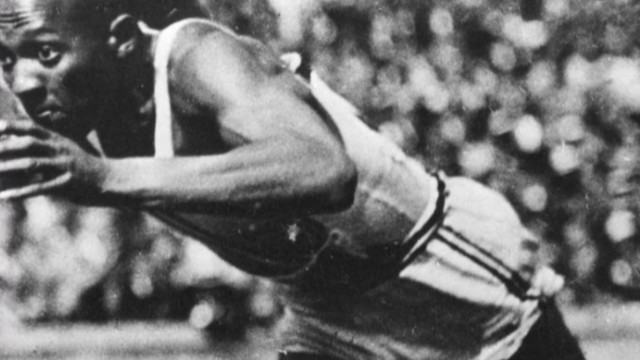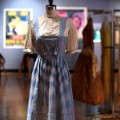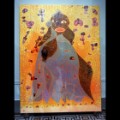Story highlights
- Jesse Owens' only remaining gold medal sells at auction for nearly $1.5 million
- It's the highest price ever paid for Olympic memorabilia
- New owner Ron Burkle, co-owner of the Pittsburgh Penguins, plans to put in on tour
- It is unclear what happened to Owens' three other medals
Jesse Owens' 1936 gold medal sold for $1,466,574 at auction Sunday, setting a record for the highest price ever paid for Olympic memorabilia.
New owner Ron Burkle, a billionaire investor and co-owner of the Pittsburgh Penguins hockey team, plans to use it for a future educational tour of historic pieces.
This medal is considered one of the most important in Olympics history and is one of four Owens won at the 1936 games in Berlin, spoiling Adolf Hitler's planned showcase of Aryan superiority.
Imagine the shock to Nazi Party elites when a black American, the son of a sharecropper and a grandson of slaves, stared down fascist propaganda, bested his rivals and took home four gold medals.
Hitler was furious, but tens of thousands of ordinary Germans cheered him on.
Owens won the 100- and 200-meter sprints, the long jump and ran the opening leg for the winning 4x100-meter U.S. relay team.
"It leaves one nearly speechless to behold this medal. It survives as one of the world's most poignant symbols of triumph," the vice president of SCP Auctions, Dan Imler, said in a statement.
No one knows where the other three original medals are, the auction house said.
Owens gave this medal to friend Bill "Bojangles" Robinson a few years after the Olympics, and the late entertainer's widow, Elaine Plaines-Robinson, sold the medal, the auction house said.
Owens never cashed in on his Olympic glory. Instead of earning a living from his extraordinary athleticism, he ended up opening a dry cleaning business and occasionally raced against horses at the behest of promoters.
"People said it was degrading for an Olympic champion to run against a horse, but what was I supposed to do?" Owens once said, according to an ESPN.com article. "I had four gold medals, but you can't eat four gold medals."
Owens eventually made a good living in public relations and as a public speaker. He died in 1980.

























